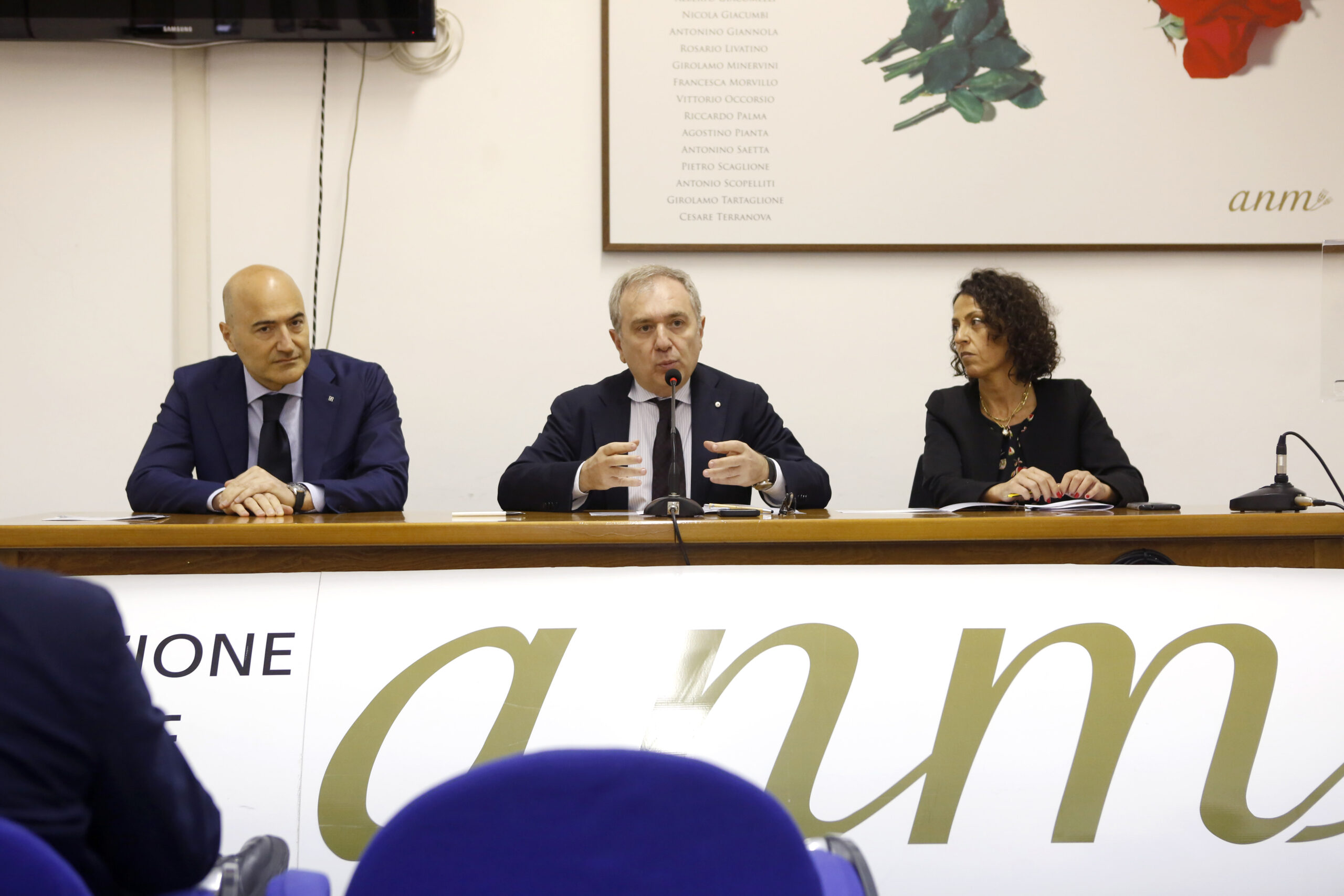The undemocratic resistance of Santalucia and Zagrebelsky

The "cultural" opposition of a large part of the magistrates to the Nordio reform continues. Damato's Scratches
There is no worse deaf person than someone who doesn't want to hear, says an old proverb that can be adapted to magistrates after Minister Carlo Nordio's speech at their conference in Palermo on the constitutional reform of justice. Which the government has yet to formulate in a bill but which the robes union, encouraged by the secretary of the Democratic Party Elly Schlein who rushed to the scene, has already rejected outright. There is no possible "mediation" on the separation of careers between judges and prosecutors, reiterated President Giuseppe Santalucia (in the photo) at the end of the congress , interviewed on Rai 3 by Serena Bortone. Who recovered from the shock of Antonio Scurati's missed monologue against Meloni.
Paradoxically, the assurance given by the Keeper of the Seals on the independence that the public prosecutors will maintain even with their careers separated from that of the judges, and in a Superior Council divided into two sections where the representatives of the magistrates will however continue to be in the majority, was used by Santalucia to contest the reform. So why change?, asked Santalucia, pretending not to understand the reasons for the changes in the pipeline. And re-proposing the opposition of a "cultural and constitutional" nature which the magistrates do not intend to give up. And never mind if the separation of careers is in the program of the center-right which emerged victorious in the last political elections, as Nordio recalled in his speech at the congress of officials.
Yes, but even the concept of electoral victory is contested by a certain constitutional culture. Just yesterday evening, in another television programme, hosted by Massimo Gramellini on La 7, the president emeritus of the Constitutional Court Gustavo Zagrebelsky said that winning elections cannot be enough for a party, or coalition of parties, to claim the right to carry out its program and invite the die-hard opposition in the fight against it to "get over it", as the Prime Minister uses to say. Which would thus reveal his authoritarianism.
Having put the question, or rather the questions in these terms, the very concept of governability becomes uncertain. Philosophically random, I would say.
Speaking of authoritarianism, Nordio's call for the reform of the criminal trial which bears the name of the anti-fascist Giuliano Vassalli, Minister of Justice from 1987 to 1991, judge of the Constitutional Court from 1991 to 2000 and president of the same in last three months. A reform from which the separation of the careers of public prosecutors and judges also logically derives, as well as from article 111 of the Constitution amended in 1999. Where, in addition to the "reasonable duration" of the trial, it is prescribed that it takes place "in the cross-examination between the parties, on equal terms, before a third and impartial judge". A curiously third judge, I would say, in a career shared with the public prosecutor.
This is a machine translation from Italian language of a post published on Start Magazine at the URL https://www.startmag.it/mondo/le-poco-democratiche-resistenze-di-santalucia-e-zagrebelsky/ on Sun, 12 May 2024 07:43:51 +0000.
